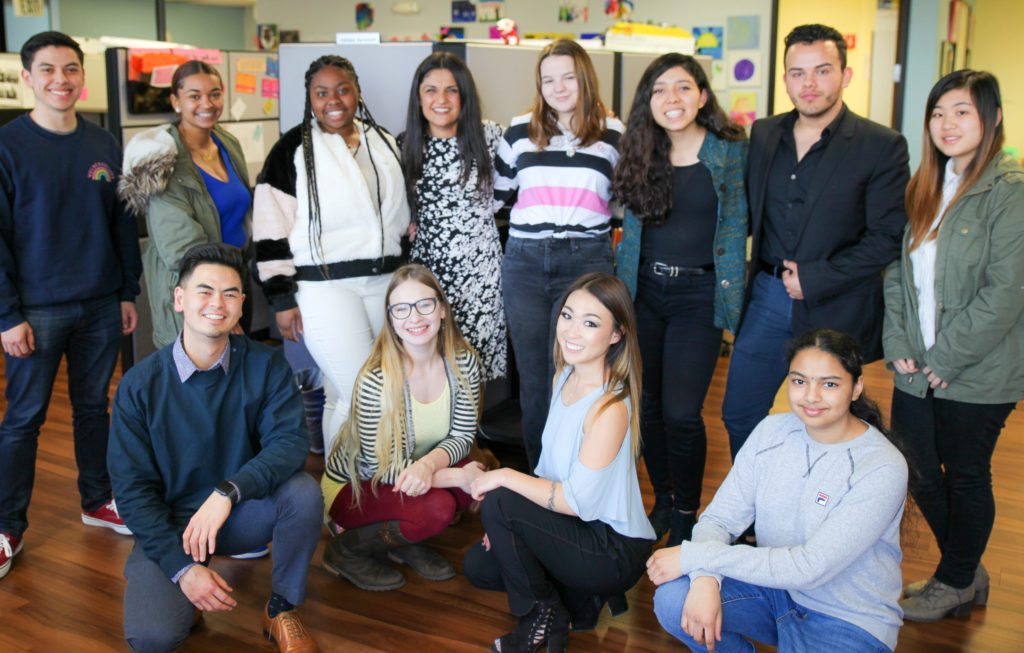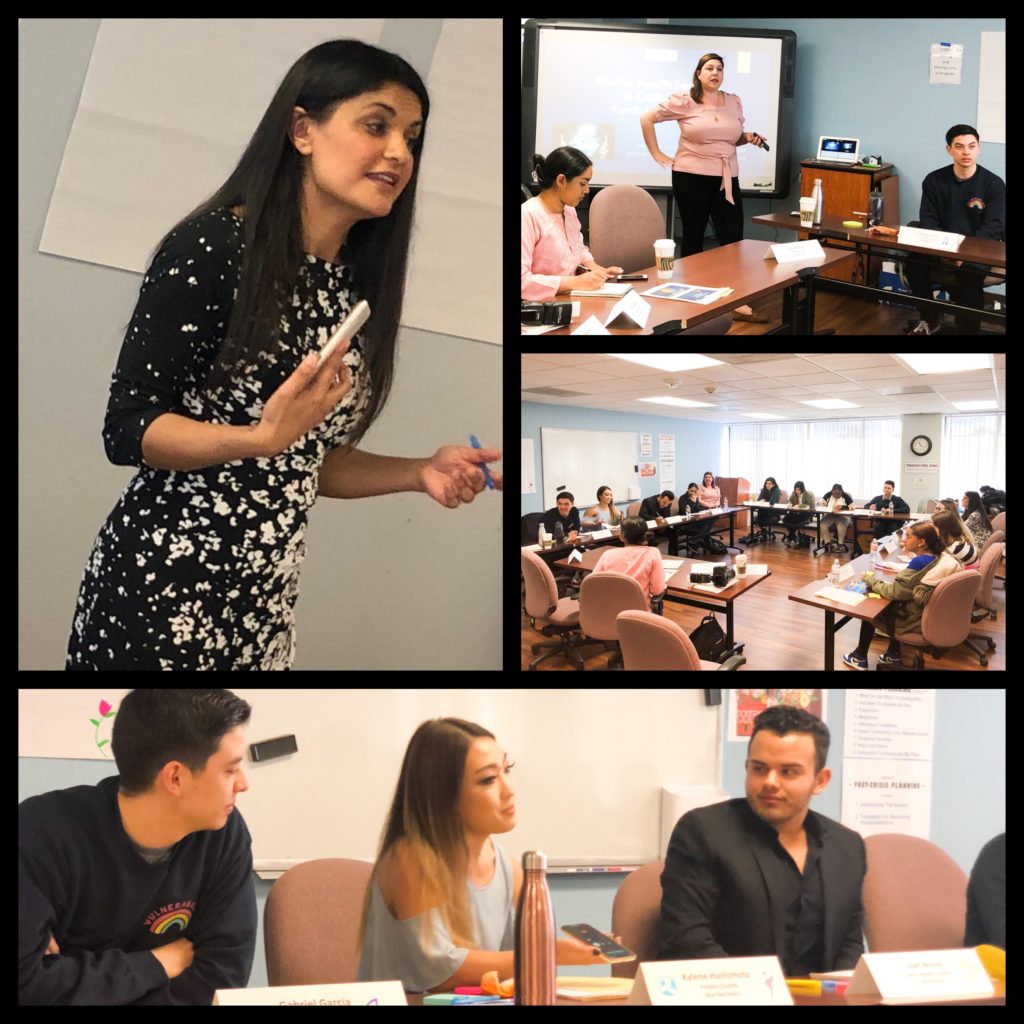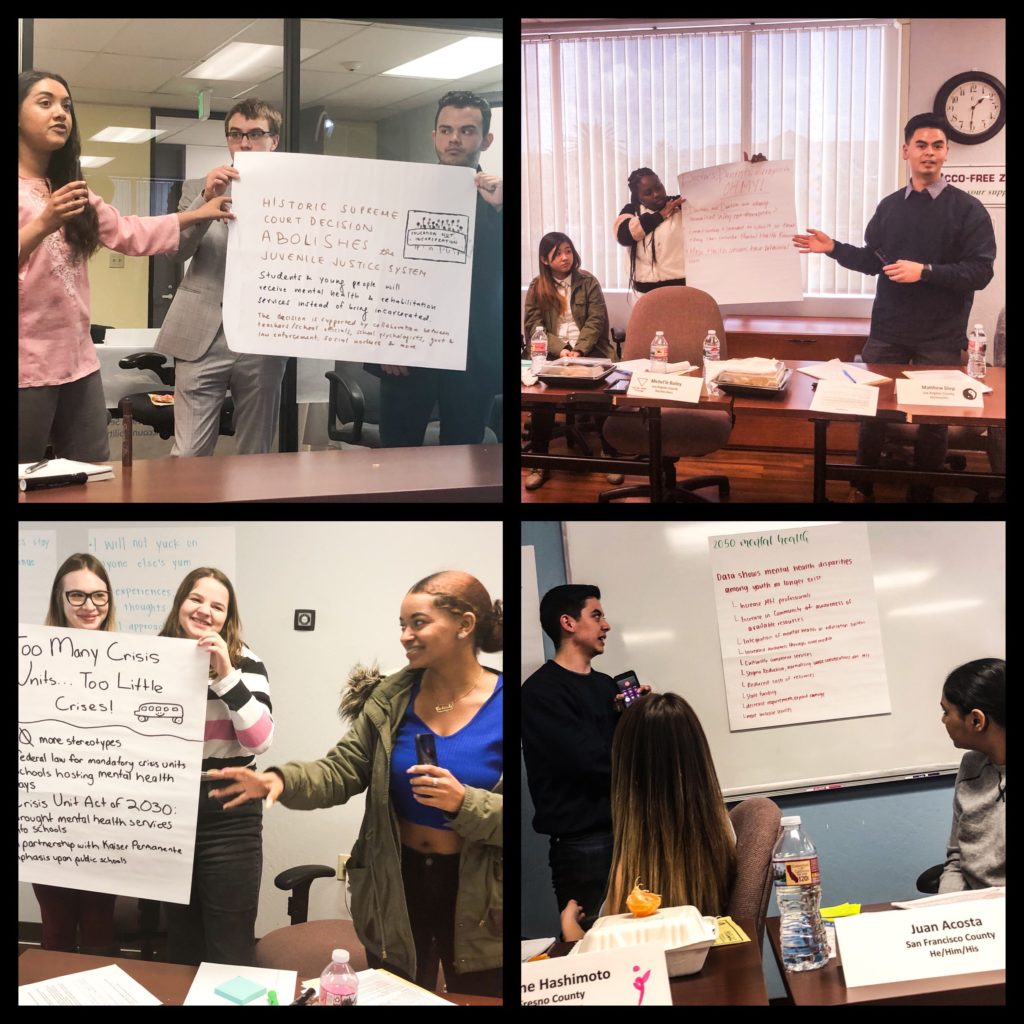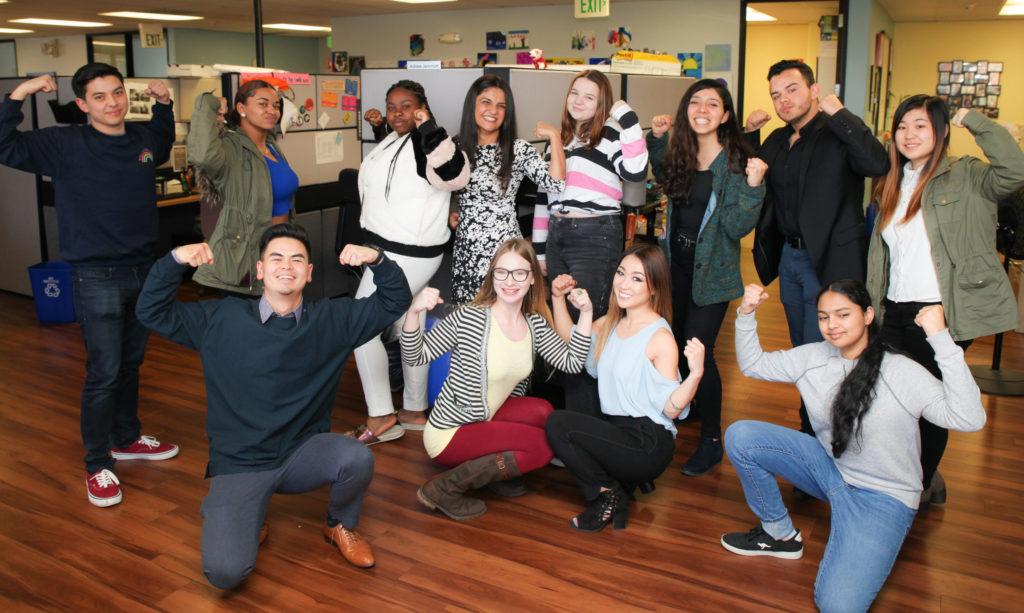“What about us? Why weren’t we included?”
If anyone needs a lesson in the power and courage of youth advocacy, that chorus of voices at the Mental Health Innovation Summit was the moment.

It began way back in early 2018 – it feels like a lifetime ago – when California’s Mental Health Services Oversight and Accountability Commission (MHSOAC) did a deep dive with several counties and a company called IDEO on innovative approaches to mental health. The Innovation Summit was the culminating event. Representatives from private and public industry, consumers, family members, education, community-based organizations, and counties – in other words, a lot of folks who don’t normally speak to each other on a daily basis – came to the table to talk about mental health.
A handful of young people had been invited to participate in the event, but there was no specific focus on young people in the programming. Somewhere right in the middle of the day-long event, these young people went directly to the Commission Chair and Vice Chair to demand that they have a seat at the table. Right then and there, Commissioners John Boyd and Khatera Tamplen pledged to host a youth-focused innovation project to address their concerns.
I was tasked with developing a framework for shaping this project. We knew it was essential to be guided by youth voice from the start, so we hosted focus groups in Humboldt and Fresno counties to learn from youth what authentic youth engagement looks like. The recommendation was to form a committee of young people – the youth felt there should be representatives from as many counties as possible – to do a deep dive of unmet needs affecting youth wellness in California. In the end, we selected 15 committee members and 2 alternates led by Tamplen, who remains a mentor and champion of youth-led/peer-led work.

Right around that time, we began conversations with Lady Gaga’s Born This Way Foundation. It had been hosting programming at each stop along Gaga’s music tours, surveying youth concert-goers about kindness, youth wellness, and empowerment. These conversations led to a partnership to do a statewide survey of young people, with the goal of identifying a focus for a youth mental health project.
It was remarkable to watch and experience young people working together. The 15 committee members, ranging from 15-25 years old, came from very different areas of the state, and from different experiences and backgrounds. They had never met before this meeting, and yet, they were instantaneously able to create rapport and a feeling of safety.
Their first meetings centered around analyzing data from the surveys and focus groups, as well as from reports published by a variety of state organizations, including the California School Report Card, California Youth Connection’s State of the Community Report, and the Children’s Trust, among others.
The youth instantly came together around common goals, rooted in their shared desire to be a part of something that increases the wellness of their peers. At this time, we partnered with yli to facilitate innovative trainings and conversations with the youth that were vital to building the foundational knowledge and skills to move their vision forward as leaders and experts. yli also supported community building in a way that was fun and crucial to fostering trust and teamwork among the cross-state committee.
This research helped them to zero in on the overwhelming need to increase prevention and early intervention services in schools using youth-led approaches. Equity was a key concern. The next step was to collect another round of data that could help to shape these approaches. The Committee met and began collaborating with Jennifer Lopez of All Children Thrive (ACT). Together, they created a multi-media voice project, which invited youth from throughout the state to submit an image of an unmet need or opportunity in their community that, if addressed or scaled up, could improve wellness.
With the support of the MHSOAC, yli, ACT and county collaboration, the committee landed on hosting a series of three regional Idea Labs to gather input from youth. I watched the enthusiastic responses of county leaders when the committee presented their ideas. The young people’s willingness to collaborate was so clear, even as they stepped up to take leadership in the implementation of their ideas.

They were also willing to try things that felt uncomfortable. And inspired by the courage of the youth, the adult allies supporting the project began to try things that were uncomfortable, too. Through yli’s support, coaching, and expert meeting facilitation, there were many opportunities throughout the project to foster positive youth and adult partnerships where youth and adults were able to share ideas and problem solve in a safe and collaborative environment.
There was no rubric for the project they were launching – they had to create the schedules, reach out to community members, work with county leadership, facilitate group conversations. They often had to make adjustments on the fly. During the first Idea Lab, a group of 20 youth unexpectedly showed up. But instead of turning people away, they welcomed them in and adjusted facilitation to accommodate them. They also brought that same beautiful ability to infuse safety and belonging into each Idea Lab with local youth. It was amazing to witness all of these young people coming together without knowing each other, or even knowing what an Idea Lab is, and create such a strong sense of community that they were able to speak openly about their experiences while designing solutions.
The committee had to adapt again when COVID-19 hit right in the middle of the project, which had been built around in-person interactions with community. When we learned that COVID wasn’t going to be short-lived, the committee voted to host virtual Idea Labs, and with the partnership and support of yli, youth designed innovative virtual labs that included additional equity and youth-adult partnership trainings to build safe and supportive environments for the Labs.
Simply but honestly, this project has been a remarkable and inspiring experience for me. I have always believed in the power of young people to organize and advocate, but after working with the committee, I now know it’s so much more than that. And these qualities are not unique to the committee members. The work they did reflects what’s possible when young people are supported and funded to do work they care about.
We as decision makers, adult allies, and legislators have had many opportunities to design systems and programming that result in wellness, but we haven’t been successful in significantly improving youth/student wellness. After hearing their stories, seeing the work that they initiated in their own communities, listening to the conversations they had with local youth to address unmet needs throughout the state, I know that they have the skills, talent, passion, and insights to design successful programming.
Collaborating with young people is smart and sustainable, and we need to start listening to their ideas and funding projects that are responsive to their needs if we want to do something different that can truly improve youth wellness – and the wellness of society in general. Youth mental health is not an anomaly. It’s part of the human condition. Young people are dealing with so much through adolescence – they’re navigating the world, growing up. And they become us.

I’m hopeful. Effective mental health services are possible. Scaling up promising prevention and early intervention strategies so that EVERY Californian receives and benefits from the services is possible. This project has shown me that there is a vast network of organizations united under the goal of improving youth wellness and an army of young people ready to be part of reimagining how. For many years, the MHSOAC has worked tirelessly and made deep investments in learning collaboratives, research and evaluation, transparency, prevention and early intervention. Legislation has been passed to fund student mental health services, drop-in centers, and criminal justice reform.
But we need to do more to lift up youth insight and solutions. Without their voice, new sources of funding will continue to invest in what adults think will be effective, rather than in what youth know will be effective. I want to be clear: it’s not fair or efficient to expect youth to take initiative, to come up with ideas, to force change on their own. We can’t expect them to build the table and then invite us to it. We need to support them, fund them, recognizing that their condition is the human condition, which is something that we’re all invested in.
To learn more about yli’s Trainings and Consulting Services.
